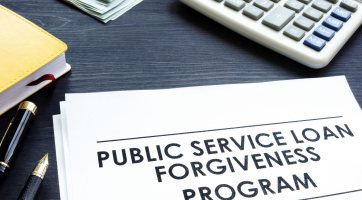Financial Resources
Financial education to help take control of your future.
Explore resources and tools to help you on your path to financial peace of mind.
Financial Education Resources
Explore our financial resources.
Questions? We've got answers.
Frequently Asked Questions
On a one-on-one consultation call, a consultant will go over your entire student loan portfolio to create a customized plan to optimize repayment strategies and potentially save you money. We can review your federal repayment plan options including potential forgiveness, and other refinancing options.
Federal student loans are loans issued by the federal government such as Direct Subsidized Loans, Direct Unsubsidized Loans, Direct Grad and Direct Parent Plus Loans. Federal loans contain many borrower subsidies and protections issued by the federal government. For example, Direct Subsidized Loans usually contain lower interest rates and the interest does not accrue during undergraduate studies. Federal loans also have very favorable forbearance protections which allow borrowers to temporarily suspend payments during official financial situations. Federal loans also have favorable forgiveness policies for borrowers that work for a non-profit or government institution. In addition, federal loans provide many different repayment plans: extended, standard, and income-driven repayment plans. The repayment plans are designed to allow borrowers to repay their loans in a way that benefits their financial situation.
Private loans are issued by private financial institutions and do not contain many of the same benefits that are enjoyed by federal loans. However, private lenders to have individual forbearance and deferment policies that are designed to help borrowers during financial hardship. Private loans can be suitable for borrowers looking to reduce their interest rates and usually result in lower interest payments when borrowers refinance their loans.
GradFin student loan consultants can help borrowers weigh the pros and cons of federal versus private loans and discuss the best repayment plans for federal and private loans.
We would love to set up a consultation with your parents, spouse, or other family members. In fact, many parents take out student loans for their children called Parent Plus Loans. These loans usually have higher interest rates. Please reach out to your GradFin rep to set up a consultation.
The Public Service Loan Forgiveness Program provides forgiveness on federal Direct student loans for borrowers that make 120 separate qualifying payments while employed full time by an eligible public service organization. An eligible public service organization is defined as a non-profit (501c3 tax-exempt organization) or a government entity (federal, state, local, or municipal organization).
The PSLF Program was passed into law in 2007 and encourages federal student loan borrowers to work in the public service sector. The Department of Education administers the PSLF laws and provides guidance on several issues related to the PSLF Program.


